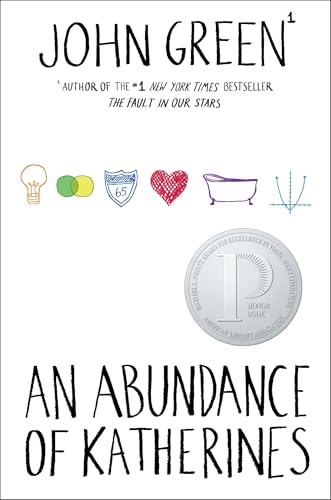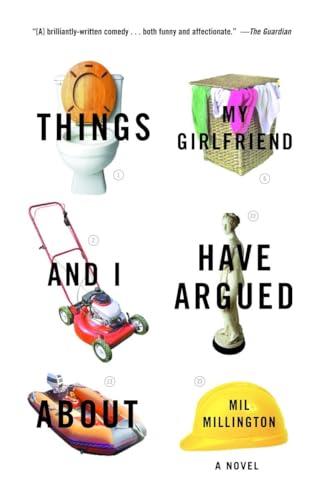When it was reported in 2006 that the FTC would begin forcing word-of-mouth companies — which paid people to hype products to their peers — to disclose their marketing campaigns, Brian Clark predicted at the time that these rules would apply to bloggers as well. Now it looks like his prediction is coming true — and bloggers are taking the news in stride... So when the AP reported recently that the FTC would begin enforcing disclosure rules on bloggers that were paid to review products, received free products or used affiliate links, Clark wasn’t surprised.Then The Washington Post came out with an article focused on Amazon reviewers, but with some related implications:
More commonly, reviewers at the top of Amazon’s charts say they regularly hear from publishers and wannabe authors hoping for a positive word; some prolific or influential reviewers have personal Web sites detailing the books they’re interested in receiving from publishers.And today a New York Times article has me making changes to the way I’ll be doing what I do online:
The proliferation of paid sponsorships online has not been without controversy. Some in the online world deride the actions as kickbacks. Others also question the legitimacy of bloggers’ opinions, even when the commercial relationships are clearly outlined to readers.What will this mean for book bloggers? Perhaps nothing, as the focus seems to be to address the bloggers that are literally being paid per post (in cash or in product) to promote goods and services. There is also a lot of scrutiny in the area of expensive gifts and trips and tech products given to review for wide-reaching blogs. Book blogs are likely to stay under the radar because we’re not pulling in the numbers of readers and because there is a longstanding tradition of books being sent out for review in newspapers and journals.
And the Federal Trade Commission is taking a hard look at such practices and may soon require online media to comply with disclosure rules under its truth-in-advertising guidelines.
However, I do think that it is an ideal time to step back and look at what we are doing. Is there a difference between a book offered for a review and books given by the publisher for contests? If a publisher offers a book and we all end up reviewing it — think The Chosen One — are we serving less as reviewers and more as an unpaid marketing machine? If a book blogger is offered a product for a group to review, does that change the dynamics of the relationship? Is there a difference between a book sent by the author and one sent by the publisher? And in all of these instances, what sort of disclosure is appropriate?
These are tough questions which will be part of a session at the KidLitosphere Conference. Many bloggers already identify in reviews which books they received from the publisher or author. I haven’t done that consistently, but I will now. Many bloggers make it clear that they are Amazon Associates, earning a small percentage of referral fees from Amazon. I have mentioned it on my blog, but I now plan to make it much clearer. I generally don’t participate in book giveaways or contests, but if I do, I’ll make sure that I am clearer about the source of the prizes. My notable exception is the 48 Hour Book Challenge, where I make it clear that the prizes are donations from authors and bloggers, or collected by me.
I’d urge you to read the articles, look at what you’re doing, and think what changes you might make. And of course, let’s talk about this — because that’s what we do.
























27 comments:
Pam,
Thanks for highlighting this issue.
It makes me laugh to think that anyone (except, as I've learned!, the creator/publisher) would consider a free review copy "payment" in any way.
I need new children's books like I need more dust bunnies and with the many unreviewable books that we receive, we are often in a quandry about which local charity would actually accept and use our many boxes of giveaway books. Not to mention that all these unreviewable books take up valuable reading time with my children, that could be spent reading high quality books of my own choosing.
Hmmmm....
Interesting stuff...
Here in Rhode Island, and a couple of other states, we have been cut off by Amazon from their Affiliates program because of tax issues. So that's one thing less to worry about for me. Sigh.
Amazon has cut off North Carolina as well (but I hadn't made any commissions in years). I'll be curious to see if Powell's and IndieBound follow suit.
I always disclose the source of the book, and I try to remember to include a note that something is an Affiliate Link. I feel like it's good practice. That way everyone knows exactly what I'm getting, if anything.
Great post. Thanks for talking about this issue, always difficult and controversial. I do think that a lot of what we do as reviewers is like doing unpaid publicity. It's hard to know where to draw the line. I know when I accept a book for review I'm giving ad space to a product and a business. I'm an IndieBound affiliate so I have the same issues that you have with Amazon- except I never make any money! :-)
Thanks for the thoughtful post, MR. I recognize that much of what book bloggers to is free publicity... one part of me feels like it's an inevitable part of the business of books. And the other part remembers that it's just my opinion, and no free book sent to me by anyone (okay, well, if it's a really nice author -- especially first time -- I try not to be too harsh) will affect the way I react to a book.
Honesty is a double-edged sword, though.
Thanks for this, Pam. I agree that this is important stuff to think about. As a result of these articles, I've tweaked my "review policy" a bit. And I'm thinking seriously about putting a note about the Amazon Affiliate relationship into the footer of every post (or at least the review posts). I have been good about indicating where a review book comes from, but this is further reinforcement to keep that up, too.
Definitely food for discussion at the conference!
Great post, Pam. Important things to think about for sure. Thanks.
Thanks for these links, Pam. I'd read the NYT one today but not the others. I've got a small pile of children's music CDs that have been sent to me for review (though I emphasize that getting a CD does not guarantee a review). While I'm glad to give a small artist some measure of free publicity, I realize more and more that what I do with my time has to make sense financially or creatively-- and it's great when I can combine both.
Hmm... Guess I should probably shelve my idea about a "WILL BLOG FOR BOOKS" t-shirt...
(Nah, I still kinda want one...)
Thanks for posting, Pam.
VERY interesting post! I may start disclosing where my reviewed books come from as well. Hm.
e
Fascinating, all of it.
(as always)
From the author's perspective - I REALLY don't want a pretty review that's been "bought and paid for". I want honest responses; if some of them are less than stellar that's okay, too, different people like different things and I've picked up a book of which I'd read a negative review BECAUSE of that review, not once, because it highlighted something for me that I thought I would like as much as the reviewer disliked it. But at least I TRUST that kind of review, something that somebody who READ THE BOOK had to say about it, freely, without being beholden to anyone for the opinion.
As an author, reviews which are in any way "bought and paid for" scare me. Rather a lot.
Great post. I'm going to link to it.
In the end I think that all reviewers, whether they are paid in cash or just in a "thank-you" note from an author, are open to the temptation of not being truthful.
The reviewer is working for the consumer, not the author or publisher. If he consistently lies, he'll lose his audience.If he's a good reviewer, his audience will find him. And they'll listen to him.
Whether he is paid to write reviews or not, doesn't really matter. Writers should be paid. They are creating content, they are providing entertainment or valuable information. Why should anyone complain when they are paid for their work?
If they are lying and rah-rah-rahing books that stink don't read them. Read someone else who is honest. It's not like there aren't a whole slew of blogger reviewers to choose from.
I do think it's a great idea to say where we get the books, though, and whether we are paid to review them.
Anyway, thanks for the thought provoking post!
That was a really interesting post! I hadn't heard much about it so far. My book blog is in it's infancy, but I am occasional sent products to try out for my food blog. I am upfront about trying out products and try to give an unbiased review, but I will be thinking more carefully about it next time.
I don't think anyone's concerned about reviewers being paid for their work -- it's *who* is paying them that's at issue. If that payment comes from authors or publishers, then there's a pretty clear conflict of interest. Yes, the idea of free review copies being akin to real "payment" seems over-the-top, but at what point beyond that does it become a legitimate conflict? Or worse, payola?
I'm reminded of movie reviewers like the notorious Earl Dittman -- or worse, the (nonexistent) David Manning. Reviewers whose sole purpose is to provide positive blurbs for advertising purposes. At a certain point, it becomes a matter of consumer protection law (as was the case when Sony was sued for making up "Manning" entirely).
If bloggers want to be taken seriously -- as more than just hobbyists -- then it's something they're going to have to think about very carefully. If you want to play with the big boys, you've got to follow the same rules (or at least the major ones).
Just my reaction, anyway.
Good stuff, Pam. Thanks.
I always note where I got a book from, because I think it does matter. Is it as big a concern as, say, someone who receives a Thing that has safety issues, perhaps? No. Well, unless it's a type of book that could have safety/health implications, such as a DIY book or something about food or diet or health.
But it is still a concern to reveal what link, if any, a reviewer has with a publisher, author, or publicist, especially when it is in a forum like blogging. A review journal, for example, isolates, to a degree, that reviewer from the process/interaction with the soliciting and marketing.
It is also important not because someone will "play nice" to get the ARC (I've read those blogs and don't read them anymore) but how it shifts what the blog does and ultimately controls what the content of a blog is. A blog that is suddenly all about Publisher A and never Publisher B because Pub A gives books. Or, because only blogs about the books Publishers send, is never about other book by other publishers and is never about older books. Or contains the same. language. as every other blog because they use canned interviews and plot description, the same word for word that is found on other blogs. At that point, I feel like I'm reading publisher blogs or author friend blogs, not blogs for readers.
There is also the question of contests and giveaways, where the item is supplied for and paid by someone else, including postage and handling. Without touching on existing laws for such contests, here is an area where an item is not being supplied for review, good bad or indifferent; it's closer to book promotion (different when a person gives away their own stuff at their own cost, where it is blog promotion, but they should still be aware of laws). It's also closer to something of real value passing thru peoples hands, and for those of us who have considered the tax questions involved here -- well. It's just another layer of things that are serious, that a blogger should consider, and if they aren't considering and being transparent about, I wonder why.
And I think that letting someone know where you got the book (whether for review or contest) and who sends you books helps that process, that transparency, for the casual reader and the long term reader. I've read some interesting misunderstandings about how things work with reviews & ARCs & newspapers etc; how to keep that misunderstanding from blogs? BE TRANSPARENT. It shouldn't be up to the reader to read a year's worth of blog posts to discover this about a blog.
As a blogger who is not nearly high-profile enough to warrent review copies sent to me by publishers or authors (except in one case--and I was so flattered :)this is not yet an issue for me. However, it is good to keep on my radar as I work towards increasing my profile and readership, so thank you for pulling the three articles together and bringing it to our attention.
This is a really intriguing issue - but more than calling the integrity of book reviewer blogs into question, it seems to me that it's an outgrowth of governmental interest in regulating the internet. If the FTC can weasel in on bloggers, it's a foot in the door for further regulation. I like the way that blogs are basically regulated by readers - if you feel a reviewer is untruthful or uninteresting, you find other blogs to follow. We don't need the FTC telling us which bloggers to read and which to shun, because they're "promoting" (writing reviews about) certain publishers who "pay them" (give them free books or ARCs to review). Back in the days of print only, I always believed that any ink is good ink. I still think that any mention by a blogger is good PR, even if the writer has something negative to say, and I stand by their right to blog whatever they like, by whatever criteria they choose.
To provide a counterpoint (or maybe just to add more fuel to the fire), legal precedent has shown that commercial speech is not afforded the same First Amendment protections as noncommercial speech. Listerine ads used to claim that the product prevented the common cold -- resulting in a $10 million false-advertising judgment. When Nike's sweatshop production practices were exposed -- though Nike had been publicly denying them -- Nike's defense (Nike vs. Kasky) was that as a corporate "person," they had the First-Amendment right to lie; the Supreme Court didn't buy it (though technically, the case ended up being settled before they could render a definitive precedent). Modern-day snake-oil salesman Kevin Trudeau has been repeatedly convicted of lying about various cure-all products -- though notably, he can continue to publish books so long as they do not promote any particular product. And it's that last point that probably holds the closest parallel to this situation.
If bloggers are receiving payment for writing reviews, then their conduct may fall under the definition of commercial speech. At issue is not whether speech on the Internet should be held to a different standard, but whether it should be held to the same standard as other speech. To date, I have seen no credible argument proffered to show that speech on the Internet is somehow special. What is different is that a substantially larger segment of the population -- a segment unaccustomed to the intricacies of commercial-speech law -- is suddenly finding itself confronted with such liability.
And here's where it becomes a question of perception. So long as bloggers are content to be viewed as the equivalent of casual chatters -- simply speaking their mind to their friends -- then yes, this sort of scrutiny might be unnecessary. But if -- as I suspect -- bloggers want to be considered in the same category as legitimate print reviewers and other media outlets, then they should seek to hold themselves to the same standards before they can expect anyone else to.
this is so interesting.
But the bloggers aren't like the snake oil salesmen. They aren't saying if you read this book it will cure what ails you. They are giving their opinions on books. And who is to say they are lying.
That's why we all have favorite movie reviewers and book bloggers. I know which bloggers share my taste in books and I listen to them and buy books they recommend.
The others, the ones who love Twilight, for instance are not lying. They simply don't like the same books I like. I don't think they need to be sued and held accountable for lying.
Oh, I certainly don't mean to imply that bloggers are snake-oil salesman. Just that laws exist to prevent deliberate falsehoods from being passed off as fact in a commercial context, and to require disclosure of any commercial relationship that may not be readily apparent. (And there's certainly a significant difference between matters of fact and matters of opinion.)
Let's assume a worst-case scenario -- a blogger is paid to write a favorable review of a book, regardless of the blogger's actual opinion (a la the aforementioned Earl Dittman). Does that run afoul of the law? I don't know. (Though since Dittman still writes movie-poster blurbs, probably not.) But if the payment relationship is hidden, it certainly pushes an ethical boundary, IMO. (For example, infomercials are required to be identified as such.)
And again, in the amounts we're dealing with here -- a few prize books or review copies -- it's at most a gray area. But good to keep thinking about.
[Had to fix a couple of typos. Sorry!)
Interesting post. My attention was drawn to it by a publisher's rep who thought I had written it or commented on it (which of course I hadn't). But now that I'm here, I will say that anyone who thinks books sent out for review constitute some kind of payola for reviewers is pretty silly. How else can books get reviewed? If reviewers are honest, and all they receive from publishers are the books they're reviewing, then wherein lies the problem? Cheers, Elizabeth Bluemle (blogger for PW's ShelfTalker)
Great conversation here. I'm glad we're talking.
Elizabeth, it's less a matter of a free book being "payment" for a good review - though that said, there was an internal kidlit controversy about that issue a year or two ago - but having more transparency in what we are doing and who is funding it. There are publisher funded giveaways and even talk around about seeking publisher sponsorship/ads. There's a diet book group competition where the books were sent to the bloggers. Many book bloggers are Amazon Associates because it's an easy place to link to and to use the book pics. And the big difference between bloggers and print pubs is that the people who write reviews aren't the same people who take the money/get the ads/benefit from publicity.
Could the FTC track down and stop an overly proud and zealous 70-something mother from leaving anonymous blog comments about her unnamed (embarrassed) daughter's books?
Post a Comment